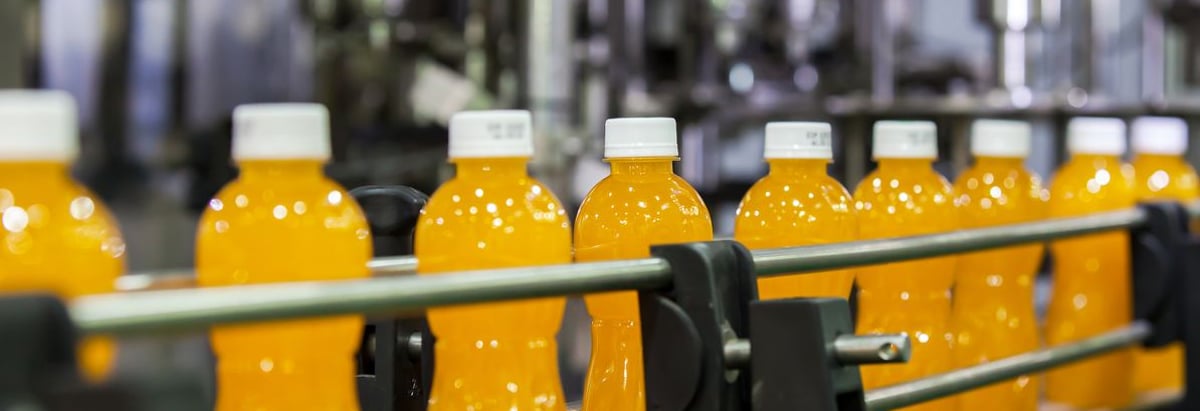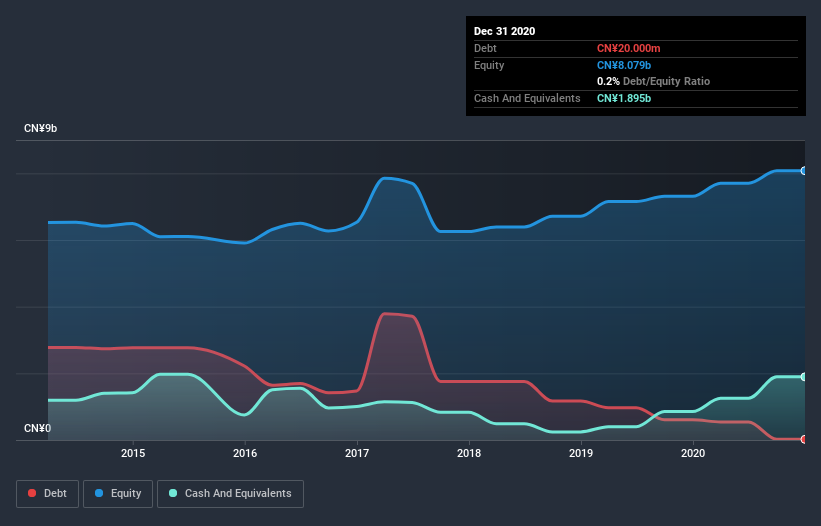These 4 Measures Indicate That China Foods (HKG:506) Is Using Debt Safely

The external fund manager backed by Berkshire Hathaway's Charlie Munger, Li Lu, makes no bones about it when he says 'The biggest investment risk is not the volatility of prices, but whether you will suffer a permanent loss of capital.' When we think about how risky a company is, we always like to look at its use of debt, since debt overload can lead to ruin. As with many other companies China Foods Limited (HKG:506) makes use of debt. But the real question is whether this debt is making the company risky.
When Is Debt Dangerous?
Debt is a tool to help businesses grow, but if a business is incapable of paying off its lenders, then it exists at their mercy. In the worst case scenario, a company can go bankrupt if it cannot pay its creditors. However, a more usual (but still expensive) situation is where a company must dilute shareholders at a cheap share price simply to get debt under control. Of course, debt can be an important tool in businesses, particularly capital heavy businesses. The first thing to do when considering how much debt a business uses is to look at its cash and debt together.
View our latest analysis for China Foods
What Is China Foods's Debt?
The image below, which you can click on for greater detail, shows that China Foods had debt of CN¥20.0m at the end of December 2020, a reduction from CN¥606.5m over a year. However, its balance sheet shows it holds CN¥1.90b in cash, so it actually has CN¥1.88b net cash.

A Look At China Foods' Liabilities
According to the last reported balance sheet, China Foods had liabilities of CN¥6.55b due within 12 months, and liabilities of CN¥479.4m due beyond 12 months. On the other hand, it had cash of CN¥1.90b and CN¥474.2m worth of receivables due within a year. So it has liabilities totalling CN¥4.66b more than its cash and near-term receivables, combined.
This deficit is considerable relative to its market capitalization of CN¥7.75b, so it does suggest shareholders should keep an eye on China Foods' use of debt. Should its lenders demand that it shore up the balance sheet, shareholders would likely face severe dilution. While it does have liabilities worth noting, China Foods also has more cash than debt, so we're pretty confident it can manage its debt safely.
In addition to that, we're happy to report that China Foods has boosted its EBIT by 30%, thus reducing the spectre of future debt repayments. The balance sheet is clearly the area to focus on when you are analysing debt. But it is future earnings, more than anything, that will determine China Foods's ability to maintain a healthy balance sheet going forward. So if you're focused on the future you can check out this free report showing analyst profit forecasts.
Finally, while the tax-man may adore accounting profits, lenders only accept cold hard cash. China Foods may have net cash on the balance sheet, but it is still interesting to look at how well the business converts its earnings before interest and tax (EBIT) to free cash flow, because that will influence both its need for, and its capacity to manage debt. Happily for any shareholders, China Foods actually produced more free cash flow than EBIT over the last three years. There's nothing better than incoming cash when it comes to staying in your lenders' good graces.
Summing up
Although China Foods's balance sheet isn't particularly strong, due to the total liabilities, it is clearly positive to see that it has net cash of CN¥1.88b. The cherry on top was that in converted 120% of that EBIT to free cash flow, bringing in CN¥1.3b. So we don't think China Foods's use of debt is risky. When analysing debt levels, the balance sheet is the obvious place to start. But ultimately, every company can contain risks that exist outside of the balance sheet. For instance, we've identified 1 warning sign for China Foods that you should be aware of.
If, after all that, you're more interested in a fast growing company with a rock-solid balance sheet, then check out our list of net cash growth stocks without delay.
If you decide to trade China Foods, use the lowest-cost* platform that is rated #1 Overall by Barron’s, Interactive Brokers. Trade stocks, options, futures, forex, bonds and funds on 135 markets, all from a single integrated account. Promoted
New: AI Stock Screener & Alerts
Our new AI Stock Screener scans the market every day to uncover opportunities.
• Dividend Powerhouses (3%+ Yield)
• Undervalued Small Caps with Insider Buying
• High growth Tech and AI Companies
Or build your own from over 50 metrics.
This article by Simply Wall St is general in nature. It does not constitute a recommendation to buy or sell any stock, and does not take account of your objectives, or your financial situation. We aim to bring you long-term focused analysis driven by fundamental data. Note that our analysis may not factor in the latest price-sensitive company announcements or qualitative material. Simply Wall St has no position in any stocks mentioned.
*Interactive Brokers Rated Lowest Cost Broker by StockBrokers.com Annual Online Review 2020
Have feedback on this article? Concerned about the content? Get in touch with us directly. Alternatively, email editorial-team (at) simplywallst.com.
About SEHK:506
China Foods
An investment holding company, manufactures, distributes, markets, and sells Coca-Cola series products in the People’s Republic of China.
Flawless balance sheet and undervalued.
Market Insights
Community Narratives



